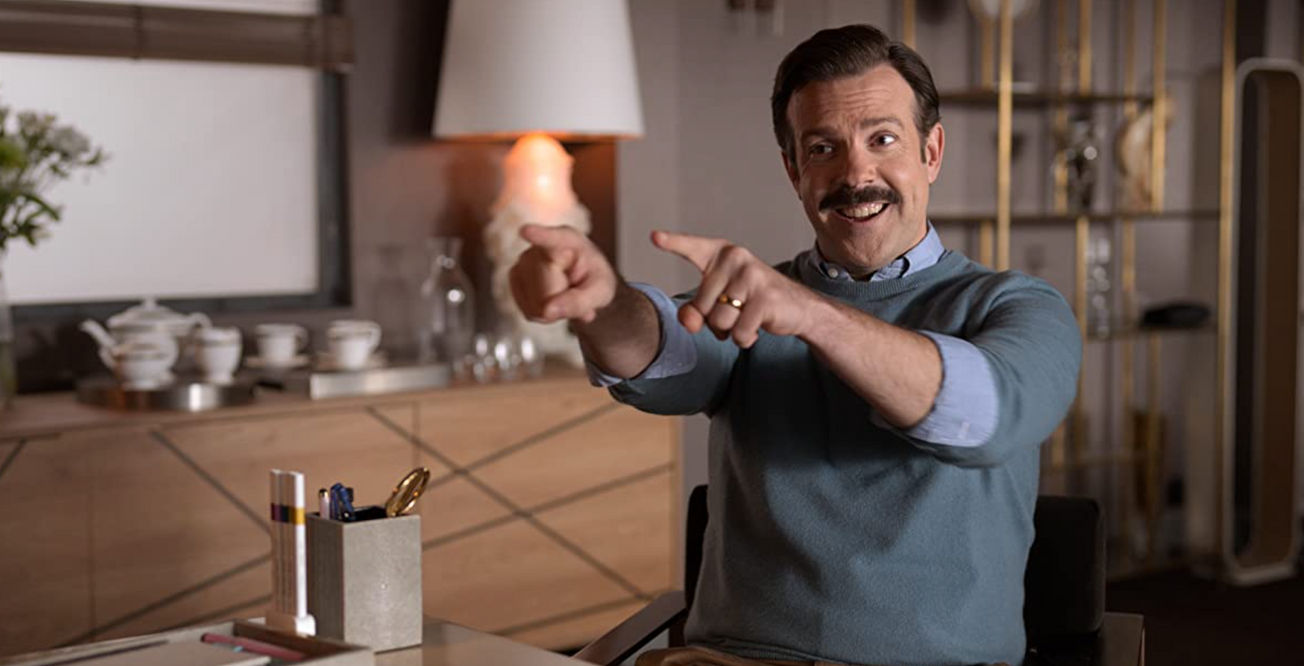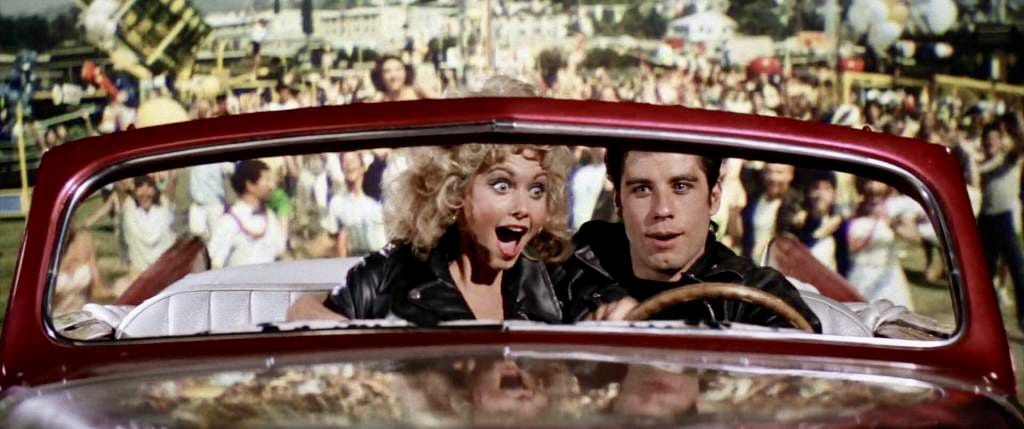By Anisha Fernando, Law, Third Year
The first season of Ted Lasso was the perfect antidote for our lockdown malaise simply for being the show that shouldn’t have worked but did. Full of unbridled optimism, comedy, and a few life lessons along the way, Ted Lasso caters to the masses despite a misconception that the show centres around football – this undoubtedly plays a huge part, but it’s the connection to the characters that has made the show so successful.
Approaching season 2, it was clear that this was the formula that works, so more good vibes should be expected, right? Except, these new episodes dare to defy expectations; if season 1 asked who Ted Lasso is, season 2 explores why Ted Lasso is who he is.
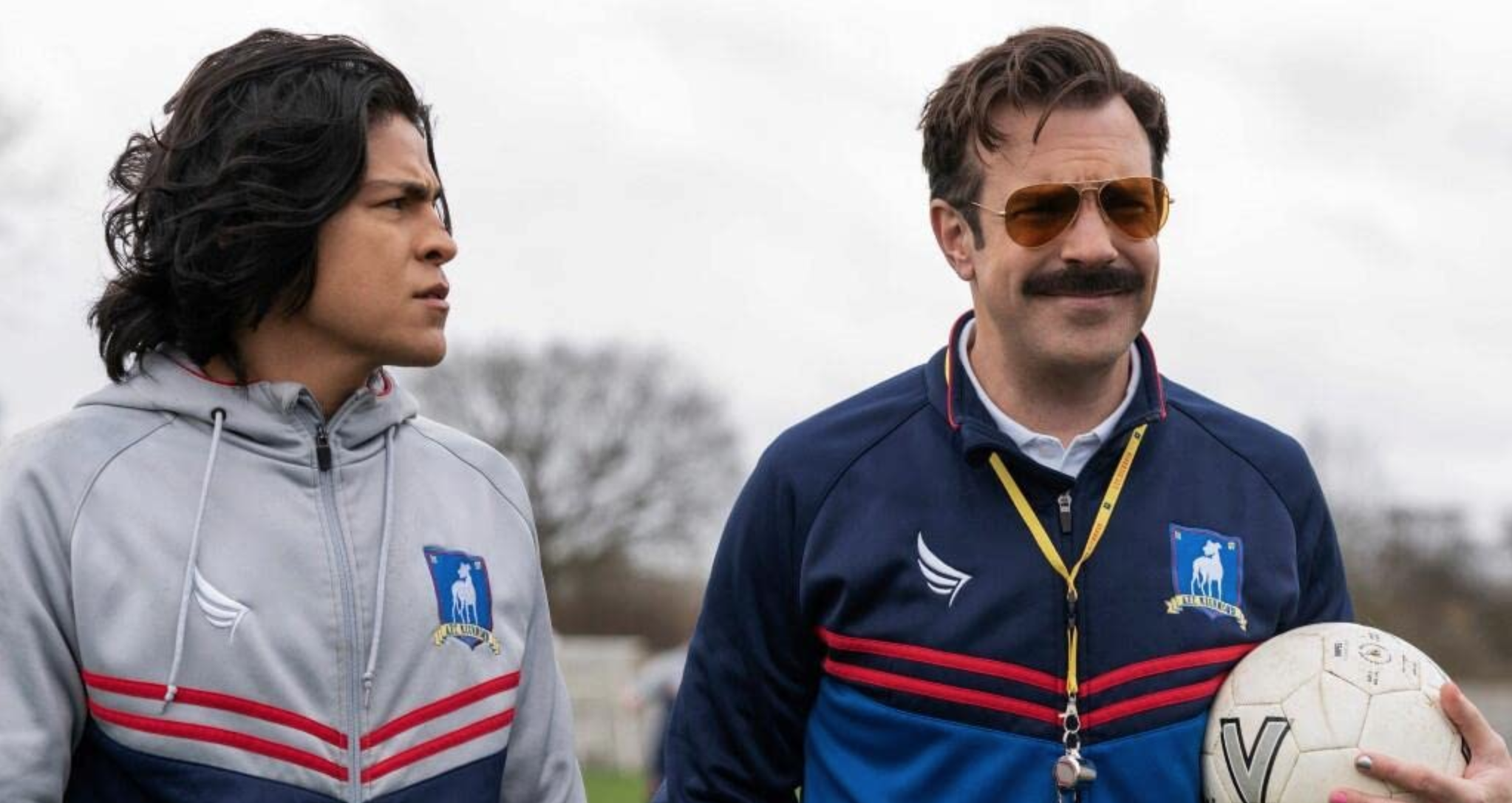
Switching lanes may be an uncomfortable adjustment for audiences, given how beloved the first season was, but it invites an introspection from the audience and characters alike. From the opening episode ‘Goodbye Earl’, we’re confronted with a problem that the affable Ted (Jason Sudeikis) is unable to solve in the darkly comedic moment Danny Rojas (Cristo Fernández) accidentally kills a dog. The introduction of sports psychologist Dr. Sharon (Sarah Niles), and her frosty introductions with Ted gives the impression of her character being the season’s newest antagonist.
While ultimately a red herring, it questions Ted’s role at the club when he can no longer solve problems by appealing to the individual. Throughout this season, a central theme emerges around the impact of characters’ choices and not shying away from the things that cause us pain. Fun stuff.
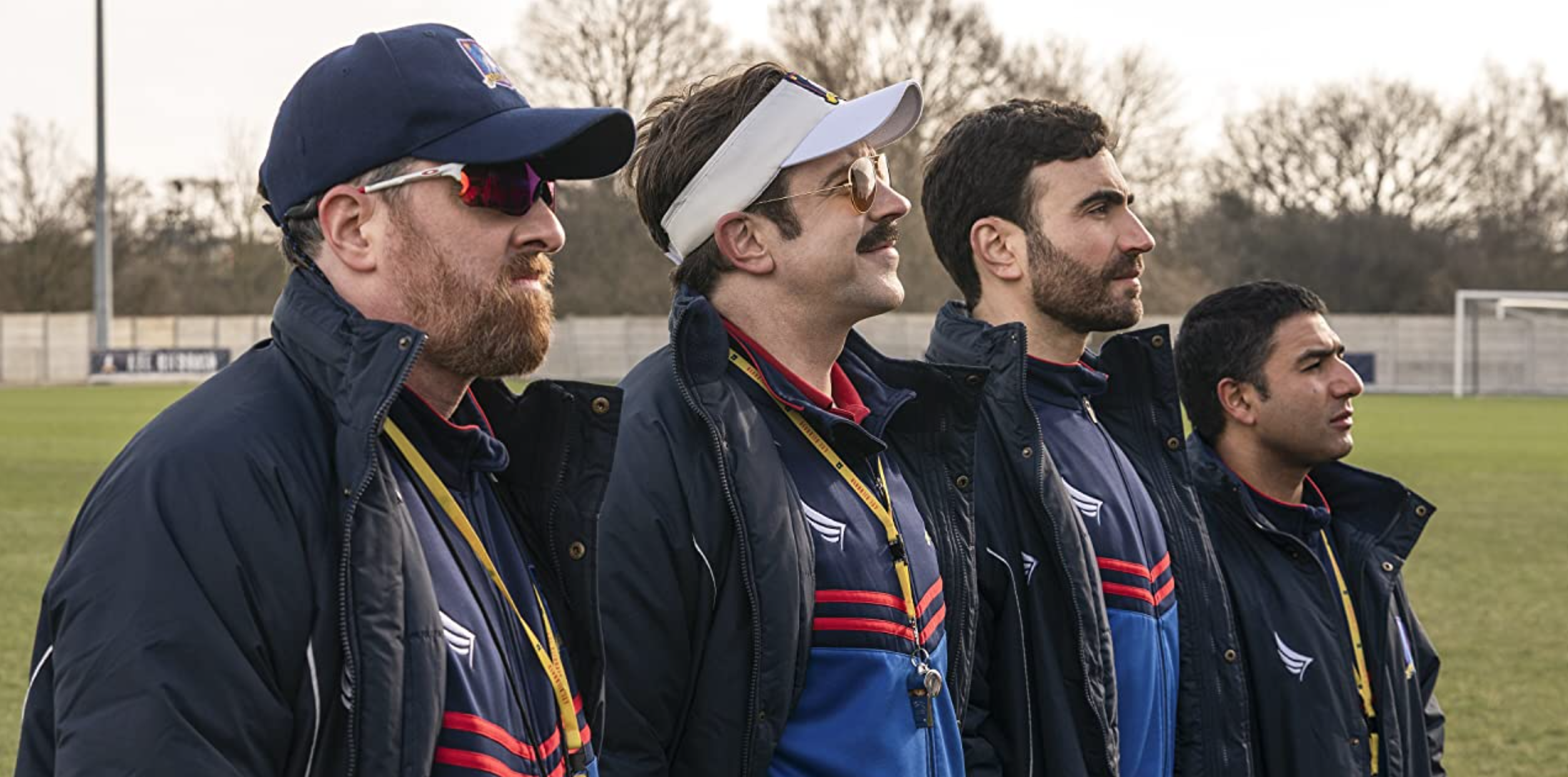
There is also a through line about the impact of relationships with fathers, with Ted addressing his unresolved grief over the death of his dad, Rebecca (Hannah Waddington) confronting her family dynamic, and Roy (Brett Goldstein) taking on a fatherly figure to the newly reformed Jamie Tartt (Phil Dunster).
Jamie’s progression contrasts perfectly with Nate’s (Nick Mohammed) failure to self-reflect, as his rise from caretaker to coach last season has contributed to unhealthy levels of self-importance and a need for constant validation. This is allowed to fester when Ted’s caring nature is largely absent as he tackles his own issues. In focusing on Ted’s journey of self-discovery, we truly see his impact as the characters around him start to unravel without his guidance.
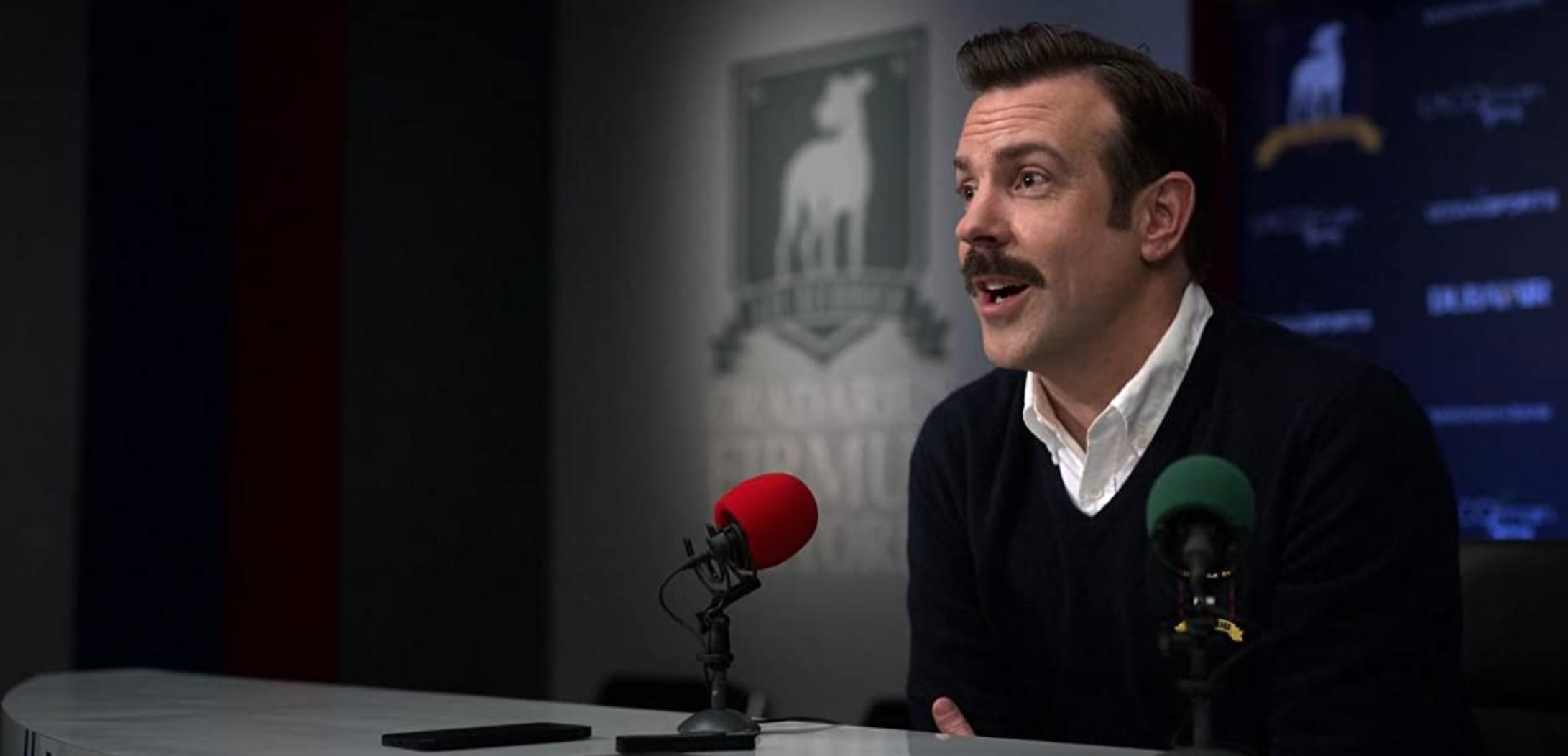
In fact, Apple TV’s expansion of the season into 12 episodes instead of 10 allows the show to delve deeper into the psyche of the characters. ‘Beard After Hours’ is a fun aside where we’re afforded a glimpse into Coach Beard’s (Brendan Hunt) life away from Ted, and the constant challenges he faces as he attempts to stop himself going back to a toxic relationship. The story, told through an homage to Scorsese, doesn’t advance the main plot yet demonstrates the importance of Ted’s compassion – and its absence in this episode was glaringly obvious.
The writing is to be commended and feels elevated this season, emphasising the necessity of having difficult conversations whilst maintaining comedic sensibilities. There’s a refreshing openness to talking about mental health in sport, paralleling current events, but it’s portrayed in an insightful manner.
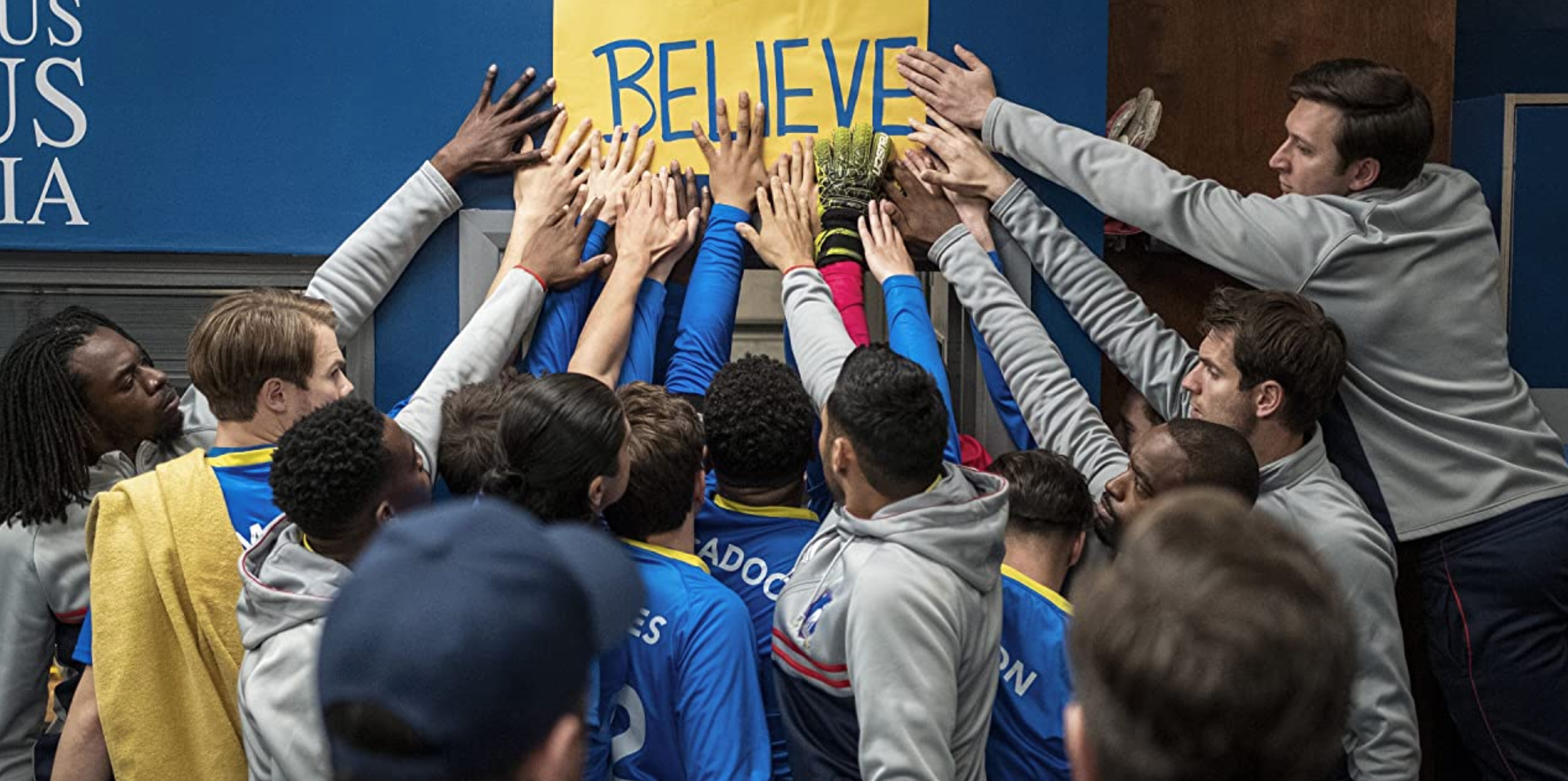
Watching the characters tackle their demons makes seeing them ‘believe’ in themselves all the more rewarding (and makes Nate’s descent all the more heart-breaking) without destroying the feel-good spirit that we were first introduced to. Ted Lasso doesn’t take the easy way out, and the risks of changing the blueprint this season paid off without dampening the positivity the show exudes.
Featured Image: IMDB
Will you be having a kick about soon with Tad Lasso?

